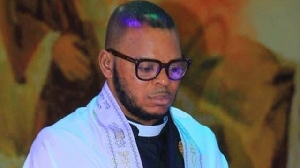Special Representative of the Secretary-General for Sustainable Energy for All has advised African countries, particularly Ghana, to invest in clean energy solutions.
Alhaji Dr. Kandeh Kolleh Yumkella said Ghana has chalked up remarkable success in electrification but must invest in clean energy solutions.
He made the remarks as a guest speaker at the Future of Energy Conference (FEC), which takes the place of the annual Africa Oil Governance Summit (AOGS) as the flagship programme of the Africa Centre for Energy Policy (ACEP).
The two-day conference is under the theme “Resource Abundance, Sustainable Choices, and Innovation: Shaping Africa’s Energy Landscape”.
In his speech, he said Ghana has done well in electrification, with almost 85% of Ghanaians having access to electricity, and the country is on the way to achieving universal access to electrification.
He said that despite this remarkable success, between 70 to 80 percent of Ghanaians still use charcoal and firewood.
He argued that lack of access to clean energy solutions is killing people, and the World Health Organisation believes that this is among the top five causes of morbidity in Africa.
He said a lot of people are getting sick, a lot of them women and children, with higher recorded cases of premature pneumonia, asthma, and even cancer.
“It is killing a lot of people and killing the forest as well,” he added.
He stated that African countries can help each other address these challenges and other energy-related issues.
FEC is a platform for stakeholders within and outside the energy industry across Africa and beyond to discuss effective and practical approaches for fostering sustainable and inclusive development in the energy sector.
These discussions will centre on the African perspective of the energy transition, addressing potential risks and identifying solutions that promote economic benefits.
The conference and its focus on change align with a broader focus on energy sector governance, extending beyond the previous emphasis solely on oil and gas governance. Consequently, FEC is dedicated to critically exploring the energy transition within the African context.
General News of Thursday, 26 October 2023
Source: rainbowradioonline.com

















